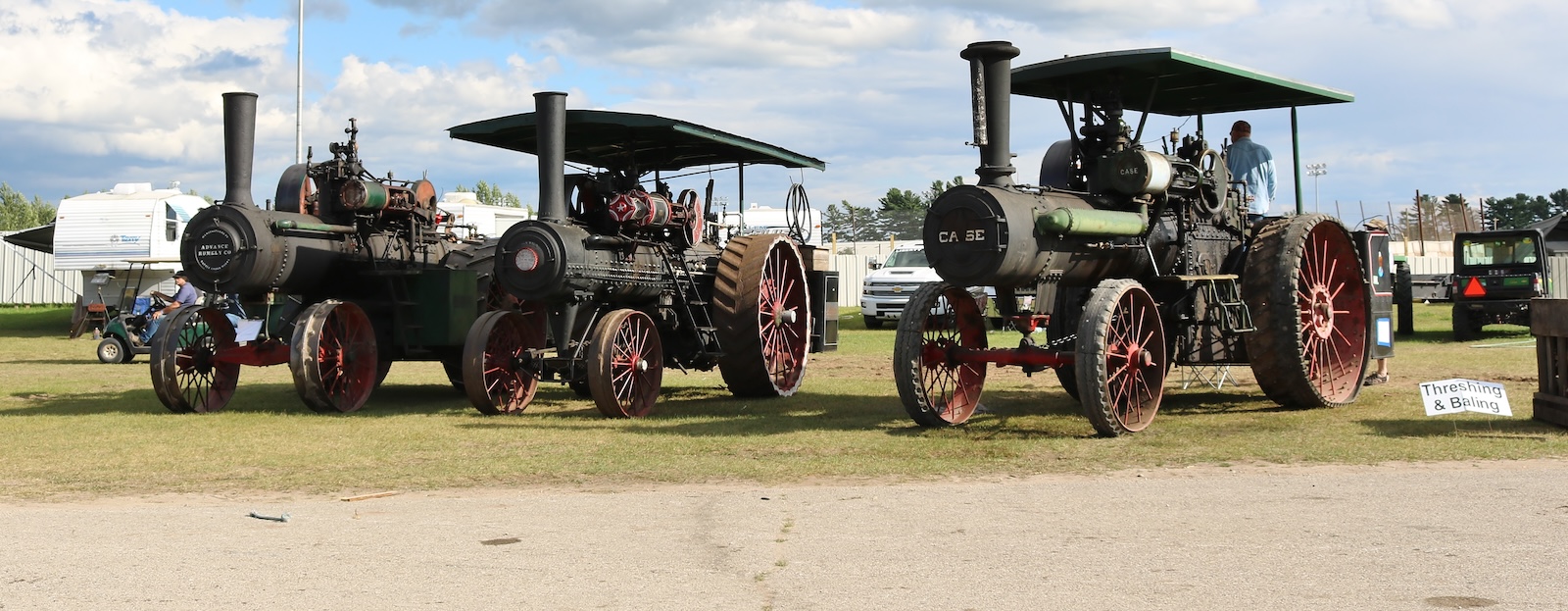
Our History
In the early 1970s, a small group of individuals were brought together by their mutual love of old farm machinery.
As they worked to restore and maintain various pieces of equipment, they were gripped by the strong conviction that something must be done to preserve these machines.
The idea of an organization dedicated to the preservation of America’s agricultural history began to crystallise.
In 1976, the U.P. Steam and Gas Engine Association was officially incorporated as a non-profit group. Its mission was the preservation, restoration and exhibition of vintage steam engines, hit-and-miss gasoline engines, tractors, farm machinery, and other items of historical interest.
On September 18-19, 1976, the fledgling group held an agricultural exposition.
In 1977, the annual show was moved to Labor Day weekend. Over the years, it has become one of the most popular and enduring events in the Upper Peninsula.
With the support of the U.P. State Fair Authority, in 1978 the Association began developing what would eventually become Antique Village. What started as a single building is now almost two full acres of exhibits and shops.
From the very beginning, the Association envisioned building an Agricultural Museum, a permanent facility that would house an eclectic cross-section of farming equipment. In 1986 that vision became a reality.
As we look forward to our 50th anniversary, the U.P. Steam and Gas Engine Association remains committed to our basic mandate: preserving the machinery of the past for current and future generations.